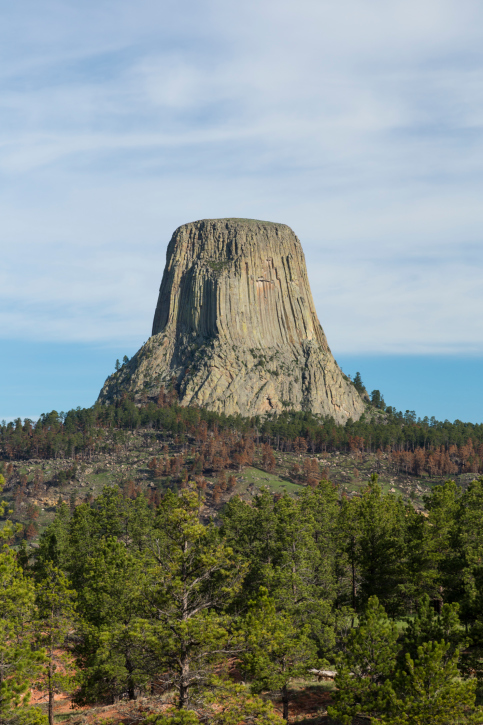A bill sponsored by Sen. Lisa Murkowski (R-AK) would restrict the president’s ability to unilaterally declare American lands and waters to be national monuments.
Currently, the executive branch can make such designations without congressional approval.
Since the passage of the 1906 Antiquities Act, U.S. presidents have established more than 140 national monuments across 285 million acres of federal land. These monuments can often be vast in size. In 2006, President George W. Bush declared 89 million acres of the Pacific Ocean a marine national monument.
Senate Bill 437, the Improved National Monument Designation Process Act, would end the executive branch’s unilateral authority to declare monuments, requiring approval from Congress and any affected states before federal land can be designated a monument.
Land-Use Restrictions
National monument designations often result in stringent land-use restrictions and can put vast acreage of potentially resource-rich land off-limits to development and use. State lawmakers representing states with the most federal land and the greatest number of monuments are pushing congressional efforts to amend the Antiquities Act. Cosponsoring Murkowski’s bill are Sens. Dan Sullivan (R-AK) and Jeff Flake (R-AZ).
Sixty-two percent of Alaska is owned by the federal government, as is 47 percent of the American West.
Currently, the Antiquities Act grants the president discretionary power “to declare by public proclamation historic landmarks, historic and prehistoric structures, and other objects of historic or scientific interest … to be national monuments.” The law limits the scope of a monument to “the smallest area compatible with the proper care and management of the objects to be protected,” but critics argue the 1906 law has been stretched far beyond the original intention behind its passage: preventing the looting of antiquities on Indian lands.
“Part of the problem is the ambiguity [of allowable scope, combined] with the ability to not only declare a national monument but to implement restrictions,” said Nicolas Loris, a senior policy fellow with The Heritage Foundation. “Whether it’s land use or whatever the case may be, that’s not what it was originally intended for, and that’s out of the realm of what the president should be able to do unilaterally.”
Although the Antiquities Act limits the president’s monument designation authority to federal lands, Loris says a monument designation often results in new limits on land use.
“It typically … comes with additional strings attached to it,” Loris said. “Even though you’re not adding more to the federal estate, you’re adding more restrictions to an area’s use, whether it’s for recreational use or extraction of natural resources.”
Bill Details
Murkowski’s bill would require congressional approval before land can be designated a national monument, in addition to approval from the legislature of the state where the proposed monument would be located.
The bill also prohibits any part of the exclusive economic zone—the coastal waters over which the United States has jurisdiction—from being designated a marine national monument without approval of Congress and state legislatures within 100 miles of the proposed monument.
State and Local Participation
States have recently increased their push for greater control over whether federal lands within their borders are designated monuments. Restrictions on the federal government’s monument authority are not entirely new.
The Antiquities Act has been amended twice since 1950 in response to states’ objections. As a result of backlash against President Franklin Roosevelt’s 1943 designation of the Jackson Hole National Monument, the 1950 law incorporating Jackson Hole into an enlarged Grand Teton National Park included a provision requiring congressional consent for the future creation or enlargement of any monuments in Wyoming.
The Antiquities Act was also amended after President Jimmy Carter used it to create 56 million acres of national monuments in Alaska. That revision prohibited presidents from designating more than 5,000 acres of Alaskan land as a national monument without congressional consent.
Loris says giving states veto power over new monument creation would “ensure that local interests are met” while still protecting the land.
Murkowski’s bill is currently before the Committee on Energy and Natural Resources.
Ann N. Purvis ([email protected]) is an attorney in Dallas, Texas.




